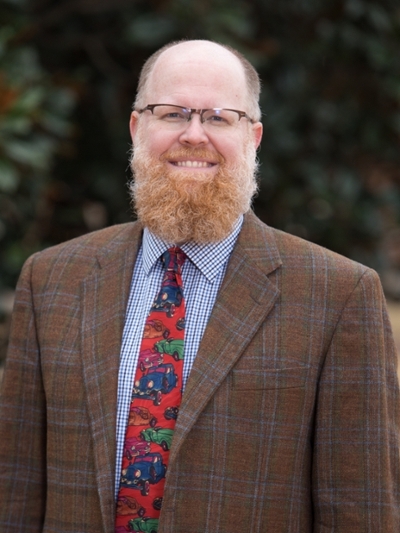
Position: Professor of human development and family life education
Teaching at Samford since 2002
Bonus fact: Dr. Davis is a Licensed Marriage and Family Therapist and a Certified Family Life Educator (CFLE)
What is one thing your students and colleagues may not know about you? I served as a missionary in Siberia for about two-and-one-half years after earning my bachelor’s degree in electrical engineering at Georgia Tech. Even though my Russian has gotten rusty since then, the experiences in those years of service were transformative for me and moved me toward my current profession. The power of this experience is one reason I recommend to students to travel during their college years (when it often is easiest) and to strongly consider taking advantage of year-of-service opportunities.
What is your favorite activity outside of Samford? I really enjoy working with my hands, though I don’t get enough opportunities to do that it seems. For example, I built loft beds for my kids’ bedrooms, and I’ve done lots of repairs on our cars and appliances over the years. Those projects have the added benefit of saving money as well as relaxing!
You place a great emphasis on student research, and your students regularly win awards. Why is that important? To me, research is central because the process of research helps students learn the discipline of systematic, precise accumulation of knowledge, and students often grow in their confidence and critical thinking while conducting their projects. I enjoy seeing them get excited when they finally get to explore data that they have worked for months to collect, and they see what the data tell them. Not many human development and family science programs across the nation take the approach we have taken at Samford which requires all of our students to go through that process. I also believe research is often the fundamental justification of an academic discipline. Research is usually the source of the deep knowledge that forms the subject matter of a field and that educated people need to know. In practical terms, I tell my students everybody has a family so what distinguishes our family science majors from other people? It’s not that they have beliefs about families, but it is that they have a scientific basis for their knowledge.
How did your background prepare you for your current role? One way my background prepared me for my role is that it allowed me to be comfortable with many different people and roles. I’ve been trained and worked in engineering/scientific fields and worked in a pastoral role at a church while in another country. And, I’ve been trained as a marriage and family therapist so I’ve learned a lot about relationships, mental illness and the humanities generally. All of these different things have really stretched me and given me a lot of flexibility.
What is one thing you want your students to know when they graduate from Samford? It’s hard for me to narrow to one thing, but two things that I’ve considered a lot over the past year are the need for critical thinking and an appreciation for diversity. I believe that in many ways these two aspects articulate the way the Bible tells us to relate to others: in truth and in love. And, one can’t fully have either truth or love without the other.
Why are you such a strong advocate for family issues? It seems to me that families are foundational to so much of our lives and identities, that it’s hard to overstate their importance. Yet, in the U.S. we tend to have an individualism that obscures the importance of families. For example, health concerns are viewed as individual problems when really they are family stresses, most violence in the U.S. takes place in relationships, and parenting is more challenging than ever because we don’t have a context that supports family life very well. So, there is a lot of work to be done to strengthen families, which are our natural social support networks that God gave us to help us with the challenges life brings us.
